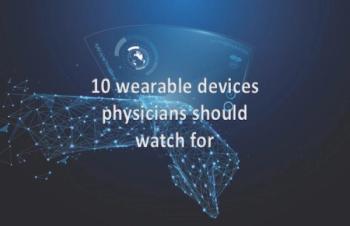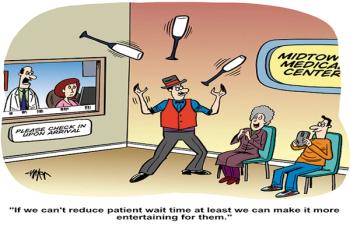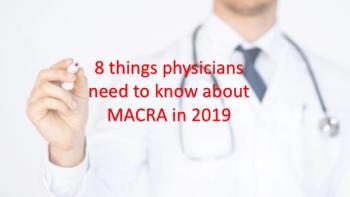
Don’t let the stress of inadequate preparation tarnish the first time your new colleagues see you in action.

Don’t let the stress of inadequate preparation tarnish the first time your new colleagues see you in action.

There are concerns that could swallow up the direct primary care movement and shunt it from being a potential salvation for our system to a flash in the pan.

Primary care physicians are trapped in a non-sustainable business model.

Risks related to outsourced billing and considerations for mitigating those risks

A small group of independent physicians challenged a powerful hospital organization, and against all odds, won the day.

An analogy to help lawyer politicians understand healthcare and its financing

What you can do today to pave the way for a successful conversion tomorrow.

As more apps come to market, wearable users look for more sophisticated devices. Here are 10 of them.

The patients’ needs cannot always win-and often don’t.

Five steps to take after you’ve matched.


Young physicians want good compensation. But money’s not all they’re looking for.

Physicians are thinking outside the box early in their careers.

How to attract and retain physicians and other providers

Here’s a look at what 2019 may hold in four areas of healthcare policy of importance to doctors: the future of the Affordable Care Act, expanding healthcare insurance coverage, the cost of prescription drugs and changes to accountable care organizations.

Why physicians are hosting podcasts and how you can start one.

Improved efficiency in allergy testing and management can close a critical gap in care for patients struggling to control their symptoms.

Five reasons why doctors need to offer telemedicine in their practice.

Four changes that can improve the value of quality metrics.

The Medicare Quality Payment Program, enacted under the Medicare Access and CHIP Reauthorization Act of 2015 (MACRA), will affect participating physicians’ payment in 2021.

Technology can improve patient satisfaction, speed of treatment, and accuracy, which can positively impact patient outcomes.

ONC officials share their views on what the future of medicine should look like.

Payer interference is increasing. Here's what to do about it.

Showing empathy improves patient satisfaction, but not every doctor is naturally good at expressing feelings to patients.

If it's not relevant, easy-and yes-delightful, the opportunity to engage with the patient is lost.